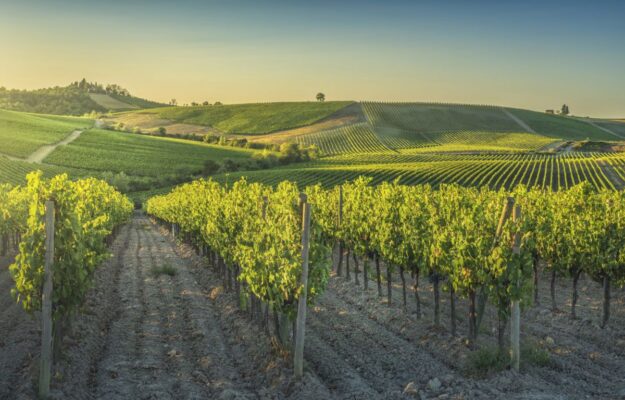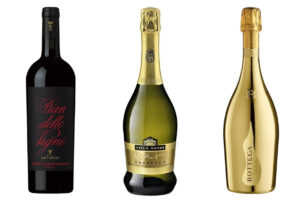Realign wine production with demand, strengthen the sector’s resilience to market and climate challenges, and adapt to trends to seize new market opportunities. On these three main axes are the recommendations contained in the document produced by the EU Agriculture Commission’s High Level Group on Wine, which came out after a December 16 meeting in Brussels with industry representatives and the significant presence of EU Agriculture Commissioner Christophe Hansen, in one of his first official outings in his new role and who said, “It is important that we work together to support the prosperity of the European wine sector. The High Level Group on the Future of Wine exemplifies the importance of dialogue and recognizes the significant value of wine as a traditional agricultural product deeply linked to our culture and identity”. First, the recommendations, the Commission explains, “recognize the strength and high potential of existing policy instruments (such as the Wine CMO and beyond), emphasizing the need to optimize their use, but conclude that these instruments can be adapted and strengthened to address challenges for the future to ensure the continued success of the sector”. Such as, for example, taking into account the promotion of a moderate wine consumption style in communication initiatives.
“The Group emphasizes the need to manage wine production potential to address structural oversupply”, it further states, “following a coherent and strategic approach at the national level, with measures aimed at improving competitiveness, sustainability and resilience. These include targeted grubbing-up schemes for certain regions or certain wines, temporary modulation of production potential through a more flexible management system for vine planting and replanting permits, or mechanisms to facilitate the adjustment of grape yields”.
Also in the spotlight, of course, is the issue of market difficulties and climate change. And the “need to strengthen winegrowers’ resilience by more effectively combating unfair trade practices and better targeting support for improved risk management tools, and innovative insurance solutions, as well as aligning investments with climate change adaptation plans. Regarding the Common Agricultural Policy (CAP) budget for the wine sector, the group recommends allowing flexibility for financial management and modification of national support programs dedicated to wine to allow for faster reaction to climatic or market events”.
Finally, the Group stresses the need to facilitate the sector’s adaptation to changing consumer preferences and global market trends by improving data collection, facilitating techniques and promotion of wine products attuned to new tastes and demands, including dealcoholic wines, and supporting innovation. And also highlighted is the opportunity for the sector to promote EU wines as messengers of sustainability, landscape protection, rural development and culture, the importance of facilitating direct sales from producers to consumers, and the need to promote wine tourism.
Recommendations that will now have to be translated into facts, rules and regulations, in the EU, in the work of the new Commission and the new Parliament, starting in 2025, but which, in the meantime, are liked by the Union’s wine businesses, according to the Comité Européen des Entreprises Vins (Ceev), which represents industry and trade wine companies in the European Union, bringing together 25 national organizations (including Federvini and Unione Italiana Vini - Uiv), and covering, with its members, more than 90% of European wine exports, but also small producers gathered in Cevi, the European Confederation of Independent Winegrowers.
“The European Union has a plan for the future of wine”, Ceev stressed. “We welcomed the establishment of this High Level Group on Wine to address the critical challenges we face and propose the necessary solutions. The structural decline in wine consumption remains the bottleneck of our problems, and future policies must focus on wine markets and consumer expectations. Although EU regulation cannot address all challenges, it can create the framework for the wine sector to successfully navigate these difficult times,” commented Ceev President Mauricio González-Gordon. Among the most significant aspects to emerge from the recommendations, Ceev explained, are those of “extending the validity of replanting authorizations; exploring strategies to manage excessive yields, promoting green harvesting and limiting the use of grubbing-up schemes; ensuring greater flexibility in the financial management of sector programs for wine; maintain a robust EU export strategy and strengthen promotion programs; strengthen climate change adaptation measures; establish new rules for dealcoholized and partially dealcoholized wines, as well as for wine tourism and distance selling; and urgently develop a harmonized and more comprehensive electronic labeling system, which should be based on a language-free Qr code identification system on the label”. And although it is not included in the recommendations, Ceev “believes that establishing principles for sustainable grape and wine production is an issue that the EU has yet to address”. At the meeting, Ignacio Sánchez Recarte, Ceev secretary general, highlighted one concern about the proposed recommendations: “we need to maintain a level playing field and therefore we will not support policies that differentiate based on legal structure, such as corporations versus cooperatives. We look forward to working with the Commission to develop these recommendations and translate them into a concrete legal framework as soon as possible. For example, developing new rules for electronic labeling systems and no-low wines are immediate priorities for the industry”, Recarte concluded.
“We are pleased that Gruppo has understood our expectations on essential issues, addressing structural challenges such as managing production potential, adapting to climate change and reducing trade barriers. These measures are essential to strengthen resilience and ensure the competitiveness of European winegrowers”, said Matilde Poggi, Cevi president. Which welcomes, in particular, “the inclusion of a nationally funded permanent grubbing-up measure in the package of crisis management tools available to member states, which should only be complemented by a temporary grubbing-up measure. It also appreciates the support for climate risk prevention and the facilitation of cross-border distance selling within the EU. However, a clear and precise timetable is needed to ensure quick and effective implementation of these measures.” But for Cevi, there are areas where improvement can still be made. “Although the extension of promotion support and the simplification of schemes for small producers are steps forward, these proposals fail to adequately support traditional wines, which are at the heart of Europe's cultural and economic heritage. Similarly, support for wine tourism-an important growth engine for independent winemakers-must be strengthened around our producer organizations to highlight their unique role in providing authentic vineyard experiences”. In addition, Cevi “regrets that the recommendations do not provide more support for the Independent Winegrowers model, illustrated by the small family businesses that are the real engine of the sector's performance. European institutions need to consider the specific needs of the micro, small and medium-sized enterprises of Independent Winemakers (as well as their economic, environmental and social contribution) to ensure fair and effective support for these businesses, which are essential to the sector’s economy and the vitality of rural areas. The Independent Winegrowers have demonstrated the success of a model rooted in tradition, innovation and sustainability. However, despite their significant role in strengthening resilience and creating value in the wine sector, this model remains under-supported. We expect European institutions to do more to preserve it”, added Matilde Poggi.
Copyright © 2000/2026
Contatti: info@winenews.it
Seguici anche su Twitter: @WineNewsIt
Seguici anche su Facebook: @winenewsit
Questo articolo è tratto dall'archivio di WineNews - Tutti i diritti riservati - Copyright © 2000/2026







































































































































































































